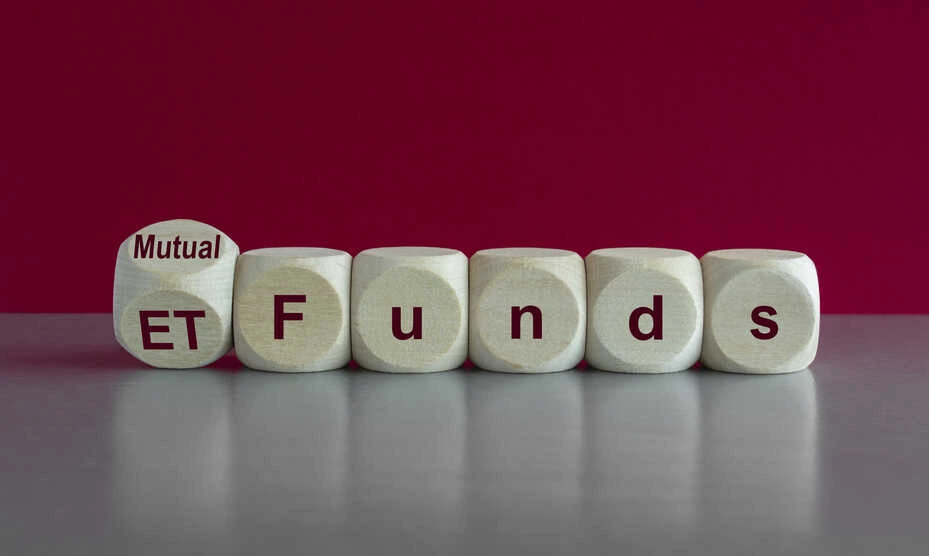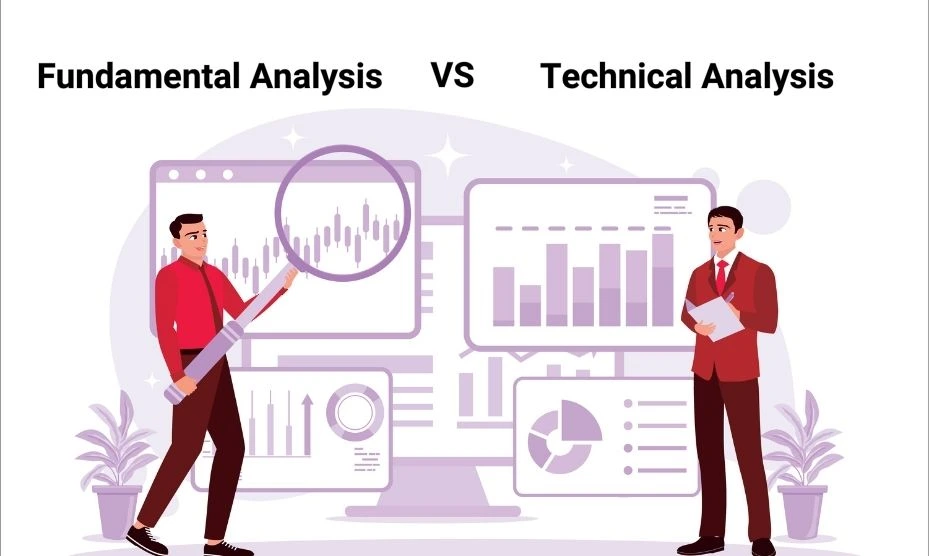
Mutual Funds versus ETFs
If you plan to enter the investing world, knowing the difference between ETFs and Mutual Funds will be a basic need! You can use both options to diversify your portfolio, but they provide for different needs. If you still don't have enough to separate them, check their distinct pros and cons. If you want to study all the points of the ETF versus mutual fund comparison, you've come to the right place.
If you want to know if ETFs or mutual funds are better, keep reading this blog.
ETF Funds vs Mutual Funds: Overview
Known as ETFs, Exchange-Traded Funds and mutual funds are collective investments that allow people to have a mixed set of assets. However, they differ based on more than a few points.
- • Mutual Funds
- • ETFs
These will join money from many market participants to obtain a broad collection of shares, bonds, and other assets. You can actively or passively manage a mutual fund and trade it like intraday trading when the day is about to end.
The liquidity factor is a leading factor in the decision-making process for mutual funds vs exchange-traded funds.
These options are similar to mutual funds, except you can trade them daily anytime as individual shares on the stock exchange. They appeal to people looking for a passive investment that doesn't need too much management or time.

Difference between Mutual Funds and ETFs
Understanding whether you should pick ETFs or mutual funds will require point-wise knowledge about both options.
Liquidity
ETFs are great for people seeking high liquidity and allow units to be bought or sold throughout market hours. A mutual fund is not this liquid, and transactions are only possible at the end of market hours.
Returns
It's natural to want to know where the MF vs ETF debate lies on returns. Exchange-traded funds are passively managed and offer tax savings, while the funds option is actively managed and doesn't offer as much tax savings.
It means there are fewer costs and lower taxes with ETFs, making them the better returns choice.
Expense Ratio
Because you manage them actively through a fund house or personally, a mutual fund can bring more fees and higher costs. ETFs have lower costs because you manage them passively, making them stand out among people who want to keep costs to a minimum.
Tax-Efficiency
A restructuring of tax makes ETFs the tax-saving option, as lower profits mean lower taxes. Mutual funds offer less tax savings due to a higher tax rate than ETFs, and it can be a leading point in the ETF versus mutual fund debate.
Diversification
Both of these options will provide you with a way to diversify your investment portfolio. It is pleasing to know, as spreading your money over many options is something that a famous SEBI-registered research analyst will tell you about!
The ETFs vs Mutual Funds Difference Table
You can check and look at this simple table to see each difference between ETFs and mutual funds and hopefully pick one!
| Feature | Exchange-Traded Fund | Mutual Fund |
|---|---|---|
| Liquidity | You can trade them anytime throughout the day & they are more liquid. | These can only be traded at the end of the day & are less liquid. |
| Returns | Lower returns but lower costs. | The higher returns bring higher costs. |
| Expenses | You can passively manage them. | They are actively managed, which can attract fund house expenses. |
| Tax-Efficiency | Lower taxes due to lower gains. | They collect higher taxes due to higher gains. |
| Diversification | Offer good diversification. | Offer good diversification. |
| Best For: | People who are looking for a liquid and tax savings option. | People who are looking for higher returns and broader options. |
Mutual Funds vs Exchange-Traded Funds Similarities
We've looked at how they differ, but how are they similar? To see why we are comparing them, here is what's common between them.
- 1. Pools Capital From Multiple Investors
- 2. Offer Diversification
- 3. Net Asset Value (NAV) is Vital
A core similarity between these funds and ETFs is that the capital is taken from a group of investors. This money is placed in several places like equities, shares, or commodities.
Investors looking to spread their investments will be pleased to hear that exchange-traded and mutual funds are diversification options.
The investments include broad bundles, so if one option performs poorly, there are others to counter this and perform well. It makes these options much better than shares.
Both mutual and exchange-traded funds work on net asset values, which you can calculate at the end of the day. You get this number through the underlying asset value, and the rise or fall of NAV can show the fund's worth.
You can learn more about the similarity of these investment options through share market consultancy services.
Mutual Funds vs ETFs: Which is Better?
It is okay to be confused about what to select, so we will give you a few points to clarify the choices.
- • When comparing a mutual fund vs. an ETF, which is better for long-term investments, the mutual fund is better for anyone looking for active control.
- • If you want low costs, the ETF versus mutual fund debate has a clear winner, as an exchange-traded fund has lower fees and expenses.
- • The debate over ETF vs. mutual fund returns sees a stalemate. Although the latter brings better returns, it also attracts higher costs.

Conclusion
Choosing between the two is tough, but the decision becomes easier once you know the difference between a mutual fund and exchange-traded fund options.
Aligning one of the options with your own goals, tax tolerance, and return expectations brings the winner into perspective.
To get custom advice on this matter, you can connect with us to get recommendations that align with your aspirations.
FAQs about Mutual Funds versus EFTs
-
What is the stand-out difference between mutual funds and ETFs?
The main difference between these two is that ETFs offer better liquidity than the fund option. You can trade an ETF anytime throughout the day as you would a regular stock. -
Which is better for longer investing: mutual funds or ETFs?
Long-term investors can choose either, and it comes down to other needs to select one. ETFs are cost-efficient due to tax savings, while mutual funds can bring better returns. -
Do mutual funds or ETFs offer better diversification?
When considering mutual or index funds vs exchange-traded funds, know that each offers impressive diversification. So, you won't have to worry about spreading your capital if you choose either. -
Which is more cost-effective: mutual funds or ETFs?
When looking for a cost-efficient investment, there's no doubt that ETFs are a clear choice as they attract lower expenses. Also, they lack active management fees, as you can manage them passively. -
How can I check the risk tolerance for mutual funds and ETFs?
A passively managed exchange fund has lower risks, while an actively managed mutual fund poses more risk. So, based on your capital goals and ability to take risks, you can choose one.


